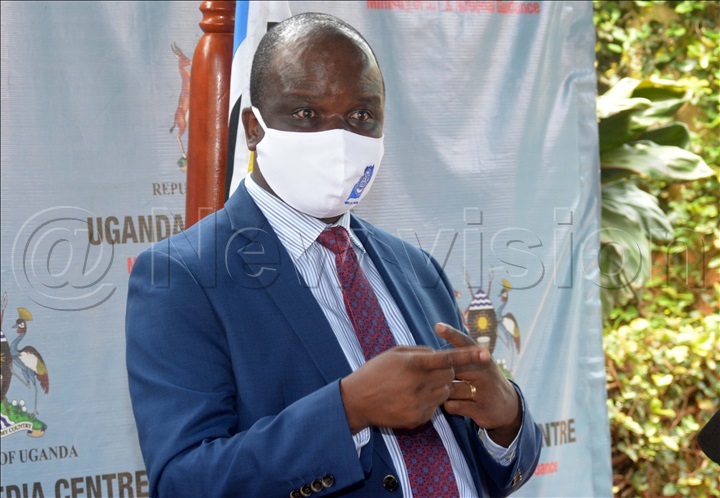HIV/AIDS: Gov't warns Ugandans against recklessness during festive season
Nov 25, 2020
She noted that though Uganda has made significant progress in fighting HIV over the last three decades, much still needs to be done to end the epidemic by 2030.

HEALTH | HIV/AIDS | COVID-19
As the people prepare for the festive season, the Minister for Presidency, Esther Ambayo, has warned Uganda to behave responsibly to avoid contracting HIV/AIDS and the COVID-19 pandemic.
While addressing journalists on the commemoration of this year's World AIDS day at Uganda Media Centre in Kampala, the minister noted that it is always common that people get excited while merrymaking.
Unlike before, this year's commemoration will be held scientifically at State House with few people due to the COVID-19 pandemic.
This year's celebration will be held under the theme: "National solidarity and a shared responsibility towards ending AIDS".
"As we draw closer towards the festive season, there tends to be a lot of excitement within the community and people tend to engage in a lot of risky sexual behavior. I take this opportunity to remind the country that we should not relax our efforts and commitment towards preventing and ending HIV/AIDS," Ambayo noted.
She noted that though Uganda has made significant progress in fighting HIV over the last three decades, much still needs to be done to end the epidemic by 2030.
Uganda is ranked among the first 14 countries globally to have achieved the UNAIDS 2nd and 3rd targets (90% of all people living with HIV being put on treatment and 90% of those on the treatment being viral suppressed).
She stressed that in spite of the progress, the epidemic remains a major public health threat in the country.
According to the 2019 UNAIDS report, Uganda is estimated to have 1.4 million people living with HIV, 53,000 new HIV infections registered annually, and an estimated 21,000 Ugandans have died of AIDS-related illnesses.

Ambayo called on all stakeholders to keep up the commitment towards preventing and ending HIV/AIDS through community mobilization engagement for social and behavior change.
She said the Uganda AIDS Commission (UAC) is now working with cultural institutions to further mobilize communities in the fight against the epidemic.
The board chairman Uganda AIDS Commission (UAC), Dr Eddie Mukooyo Sefuluya, said they are considering reactivating AIDS committee structures at various levels (district, sub county, and parish).
He said the structures are important in empowering communities at the lower level.
"We must ensure that we reactivate these committees for effectiveness if we are to achieve zero HIV death by 2030," he noted.
He stressed that Uganda with a 6% HIV prevalence, is a clear indication that all its approaches and programs are working and the majority of the patients adhering to treatment.
"This is confirmation that the programs the government has put in place are functional and working and people have been receptive," he added.
However, Sefuluya stressed that the last mile is always the most difficult, stressing that the fight must be taken to the community level at the individual person, to ensure that every person in a household knows their HIV status.
The Director General UAC, Dr Nelson Musoba, said the COVID-19 lockdown affected the movement and many HIV patients failed or delayed to get medication on time.
"We are going to see the implication of this in the new report," he said.
Musoba noted that HIV prevalence remains higher in women compared to men ranging from 6.8% to 7.2% while men at 4.7%.
He said the prevalence rate among young people is also three times higher among the age of 15-25.
Musoba also noted that men between 45-49 record the highest prevalence rate at 14% in men.
"These are men with money and always engage in a transaction and cross-generational sex with young women in the lower age group of 17 to 25 years," he noted.
